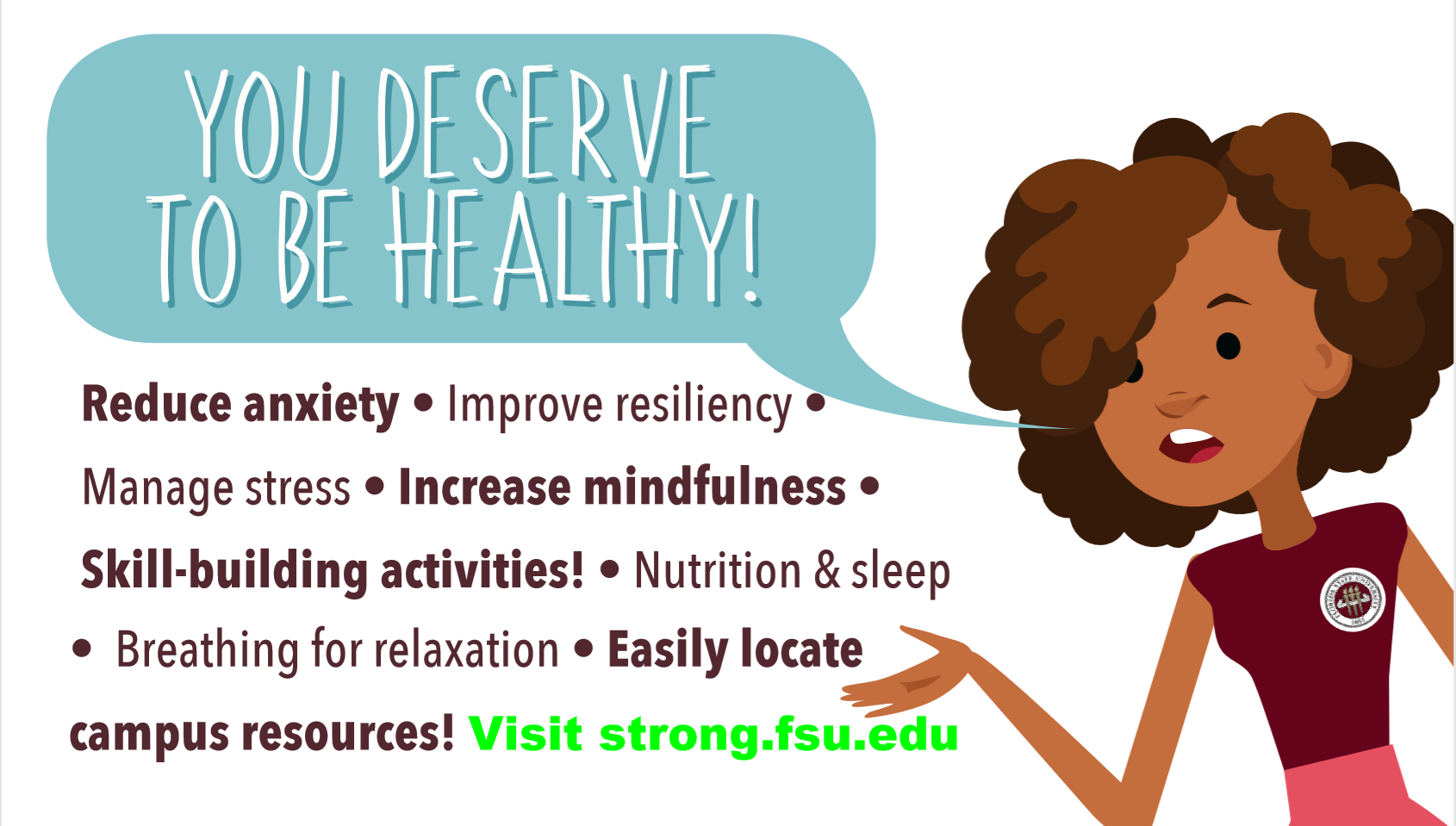FSU Study Indicates College Students Benefit from Student Resilience Project Wellness Intervention

Researchers at Florida State University recently published a study in the Southern Communication Journal evaluating the impact of FSU’s Student Resilience Project on first-year college students.
Fully launched in 2018, FSU developed the Student Resilience Project to provide first-year students with information on self-help coping skills and access to campus health and academic support resources to improve their acclimation to college.
The study evaluated the impact of the student’s interacting with FSU’s Student Resilience Project on their self-efficacy and intentions to engage in self-help behaviors during the 2021-2022 school year.
“The School of Communication was the perfect partner for this project because they are experts at health messaging; we know that it’s so important to communicate with students in a way that is meaningful and effective.” Karen Oehme, cofounder of the FSU student resilience project.
School of Communications researchers at the FSU College of Communication and Information, Josh Hendrickse, Elizabeth Ray and Laura Arpan collaborated on the study with the Institute for Family Violence Studies Director Karen Oehme and institute staff members Ann Perko and Lyndi Bradley.
Of the 216 first-year students, nearly half identified as nonwhite and were predominantly female and heterosexual. Students were randomly assigned to either a high-exposure or low-exposure group to the FSU Resilience Project toolkit.
Students in the high-exposure group were asked to view at least two videos from the “What I Wish Knew (my first semester of college)” section of the site, which featured students sharing experiences overcoming challenges, and the “Learn New Skills” section, describing self-help skills. High-exposure students were then asked to report two lessons learned from the site.
Participants in the low-exposure group were asked to review the site and asked to describe two lessons or facts learned from their academic classes. The procedure was then repeated twice for each group.
The study indicated that the more participants engaged with the site the more likely they were to report increased self-confidence and the ability to engage in self-help behavior.
“This positive correlation between utilization of the Student Resilience Project and a student’s self-efficacy can be a great start towards engaging in those important resilience and coping skills students need to develop during their time in college,” Karen expressed. “The results coming out just in time for Self-Care Awareness Month also highlight an important resource available to FSU students. Any and all FSU students can access the Student Resilience Project at strong.fsu.edu.”
Participants who interacted with the site also expressed an intention to engage in more self-help behaviors like yoga, meditation, journaling) than students who did not interact with the site.
FSU’s Student Resilience Project continues to be a model nationwide new tools and resources to the site every year.

